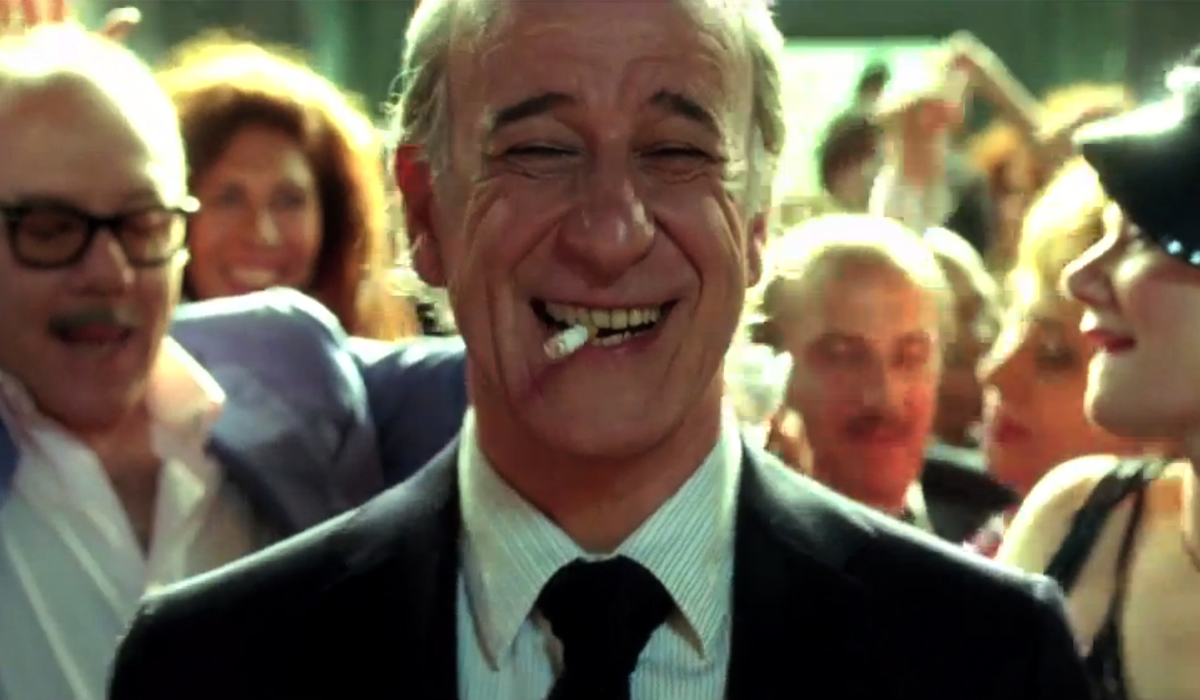E così l’Italia ce l’ha fatta.
15 anni dopo Benigni con “La vita è bella”, Paolo Sorrentino alza al cielo la statuetta più ambita nel mondo del cinema, portando alla vittoria “La grande bellezza”.
Un cammino trionfale, partito da un Festival di Cannes deludente, ma andato poi migliorandosi con quattro EFA (Gli Oscar europei), un Golden Globe e un BAFTA (l’Oscar britannico).
Lentamente tutto il mondo è rimasto colpito da una Roma magnifica e decadente, manifesto perfetto dell’Italia di oggi, sempre sul filo tra patetico e sublime.
Il film di Sorrentino è un mirabile scorcio su Roma da parte di un artista contemporaneo, che ci ha ormai abituato ad un punto di vista personale, metafisico e psichedelico.
Roma è scenografia della società moderna, attraversata da personaggi tormentati, di cui il regista è sapiente narratore.
L’intera pellicola gioca sui contrasti: sacro e profano, spiritualità e amoralità, borghesia e proletariato.
Roma è molteplice e si rappresenta, barocca, cafona. Magnifica.
Una Roma vuota come vuoti sono i personaggi che vi si agitano dentro. Alcuni di loro faticano a trovare il senso delle cose e cercano, dunque, di salvarsi con attività legate all’arte, lavorando con la fantasia e allontanandosi dalla realtà.
La grande bellezza è una città piena di distrazioni. Effimera. Un trenino in costante movimento: ci si muove in continuazione, senza andare da nessuna parte.
Il film si muove dentro dei contesti molto italiani e prova arditamente a fare un racconto sul presente. Un presente volgare, rumoroso, in contrasto con il vuoto dei personaggi.
Toni Servillo è il Virgilio che ci accompagna in questo viaggio nella Città Eterna. Un compagno complice e sornione; un attore semplicemente straordinario. Jep Gambardella è un viveur di sessantacinque anni, autore di un solo libro di successo, che attraversa mondanità e situazioni surreali in una città santuario di meravigliosa grandezza.
Il film è ambientato per lo più di notte, momento di riti sociali esasperati. Quando la gente normale dorme, si manifestano dei nuclei notturni, borghesi o proletari, che si dedicano alle mondanità, allontanandosi dal concreto.
Sorrentino si dimostra innamorato di questa città e dei suoi volti, e riesce a trovare il sentimento in personaggi che normalmente provocano disgusto.
La grande bellezza è un capolavoro dei nostri tempi. Vincitore dell’Oscar o meno, rimarrà nella storia del cinema e in quella di ognuno di noi, perché è riuscito a raccontarne una parte. Ad essere splendido affresco di questa decadenza.
“Le vedi queste persone? Questa fauna? Questa è la mia vita. E non è niente.”
(Jep Gambardella)
[divider]ENGLISH VERSION[/divider]
And so, Italy made it.
15 years after Benigni’s “La vita è bella”, Paolo Sorrentino lifts the most desired award in the movie world with the victory of “La grande bellezza”.
A triumphant path, started with a disappointing Cannes Film Festival , but improved with four EFA( the European Oscars), a Golden Globe and a BAFTA (the British Oscars). The world has slowly been shocked by an amazing and decadent Rome, the perfect manifesto of today’s Italy, always between the pathetic and the sublime.
Sorrentino’s movie is an admirable glimpse of Rome from a contemporary artist, who got us used to a personal, metaphysical, psychedelic point of view.
Rome is the scenic design of the modern society, characterized by anguished characters, whose director is the wise narrator.
The whole movie plays on contrasts: sacred and profane, spirituality and amorality, middle class and working class. Rome is composite and represents itself as baroque and bad mannered, but still amazing.
It’s an empty Rome like the characters, who shake themselves inside of it. Some of them struggle to find the sense of things and so they try to save themselves with activities in the art field, working with fantasy and escaping by reality.
“La Grande Bellezza” is a city full of distractions, ephemeral, it’s a train constantly moving: you are constantly moving but you are going nowhere.
The movie is about very Italian contexts and bravely tries to talk about the present, a vulgar and noisy present in contrast with the emptiness of the characters.
Toni Servillo is the Virgil who accompanies us in this journey in the Eternal City. He is a crony and sly partner. Jep Gambardella is a 65 years old viveur, the author of an only successful book who goes trough high society and surreal situations in a city that is the sanctuary of an amazing beauty.
The movie is set mostly at night, the moment of exasperated social rituals. When normal people usually sleep, nocturnal groups, bourgeois or proletarian, dedicate themselves to worldly pleasures escaping from the concrete.
Sorrentino shows himself in love with this city and its facets, and he’s able to find the emotions in some characters that normally provoke disgust.
“La Grande Bellezza” is a masterpiece of our times. Winner of an Oscar or not, it will remain in the history of films and in ours too, because it’s been able to talk about a part of it, being a gorgeous fresco of this decadence.
“Do you see these people? This fauna? This is my life. And it’s nothing.”
(Jep Gambardella)

